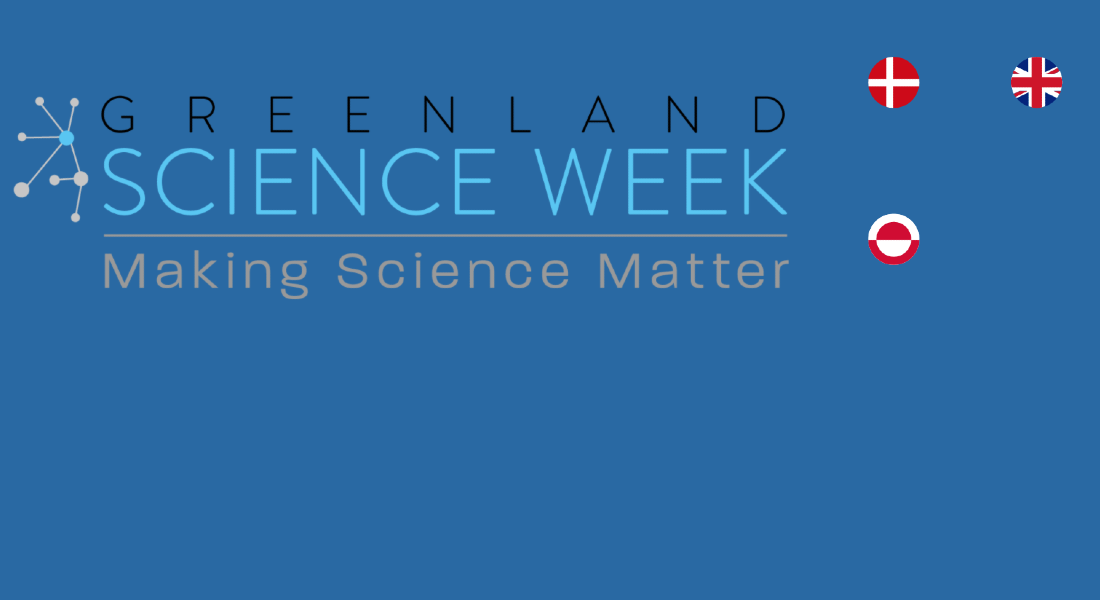Event at Science Week Greenland
On November 12th 2021, the CAPARDUS and FutureArcticLives projects organized a side event at Science Week. The side event took place at Ilisimatusarfik – Nuuk University - in Nuuk, Greenland.

Workshop on future analysis and Bayesian Belief Network modelling in natural resource management in Greenland
The invitation to the side event at Science Week 2021 in Nuuk highlighted the need for future analysis and the usefulness of Bayesian Belief Network (BBN) models in combining scientific and Indigenous Local Knowledge (ILK). BBN models facilitate describing complex socio-ecological systems characterized by a lack of data and assessing the outcome of potential policy interventions to address climate change and biodiversity reduction – see the invitation here.
Overwhelming consequences of climate change
Climate change is occurring faster in the Arctic than in any other region, with tremendous consequences for Arctic biodiversity and the people that depend on it. Climate and biodiversity change can undermine established production patterns of hunting, fishing, gathering and herding by Arctic communities, negatively influencing their welfare and wellbeing. Changes furthermore occur in a context of far-ranging economic, cultural and political change, including other sector activities such as extractive activities including mining, forestry, commercial fisheries and infrastructure and housing development taking place in the same areas.
The combination of ecological and societal changes facing small-scale rural users and indigenous groups in the Arctic may surpass their resilience and adaptive capacity. Therefore, it needs urgent assessment to reduce adverse social and ecological outcomes. Physical and economic forecasts and scenario assessments are required to assess climate and biodiversity change impacts on Arctic communities and explore adaptive management options under global policies and trends. Social science research describing the systems that are part of ongoing changes is underrepresented and needed to inform decisions. However, the scarcity of data and the complexity of these social-ecological systems remains a challenge.
The Bayesian Belief Network (BBN) models
In vast world areas, ecosystems are governed primarily by Indigenous peoples and local communities (IPLC) whose knowledge systems and practices are as diverse as the locations and groups from which they emanate. Indigenous and local peoples’ in situ knowledge practices have the potential to make significant contributions to meeting contemporary sustainability challenges both locally and globally. Indigenous Local Knowledge (ILK) is generated and developed through close interactions with the environment grounded in lived experience, often through stewardship practices. These can include selection and domestication of crops and animal breeds, hunting and harvesting, habitat management and restoration, but also cultural practices, observation, and experience.
Bayesian Belief Network (BBN) models offer an opportunity to explore complex socio-ecological systems with limited data by incorporating both scientific knowledge and LIK. This can make it possible to make predictions about the outcome of management interventions and how sensitive these are to different future scenarios. BBN models describe socio-ecological systems graphically as a network of interactions between nodes from primary cause to outcome with all cause-effect assumptions made explicit. The graphical representation of the model has the further advantage of promoting involvement and interpretation by local stakeholders whose activities and acceptance of management interventions ultimately will determine their outcome.
Bringing people together at Science Week
Future analysis and BBN models are increasingly relevant to incorporate the uncertainty arising from complex interactions between climate and biodiversity change and other sector activities in assessing management options for conservation and development planning in the Arctic characterized by incomplete data.
Hence, the objective for the side event was to bring together people working with future analysis and BBN models. The event had two components:
From 10:00 to 12:00
The side event facilitated the presentation of the result and ongoing work of different projects enabling individuals working with future scenarios and BBN models and similar methods in the Arctic to meet across sectors. The session was well visited and facilitated the exchange of ideas between scientists and discussion about the potential uses of these approaches to temporary management issues in Greenland and elsewhere. These ideas will be further developed in a research school that will be organized in Aassiaat in 2022 by the CARPADUS project to, among other objectives, enable participants to explore the SurBayes software and develop their own BBN models.
From 13:00 to 16:00
The side event focused on interpreting a BBN model developed by the CAPARDUS project to explore management options for the inshore halibut fishery in Greenland, evaluating the outcome in different future scenarios. This part of the meeting was orientated towards stakeholders in the administration, scientific advisory institutions, the fisheries sector and associated organizations. Unfortunately, an all day plenary meeting in the National Fisheries Commission including all key fisheries stakeholders was overlaping the side event and futhermore, some participants cancelled their participation at the last minute, considering the temporary increase in COVID-19 positive tests in Nuuk. However, the session facilitated a good discussion between attendees and allowed project members to finally meet after almost two years of COVID-19 restrictions complicating or preventing physical meetings.
Hence, we had a good side event and are grateful to our participants for their contributions to the debate.
You can find the invitation to participate in the side event and the combined PowerPoint presentations associated with this news story here.
Topics
Contact
Martin Reinhardt Nielsen
Associate Professor
mrni@ifro.ku.dk
University of Copenhagen
